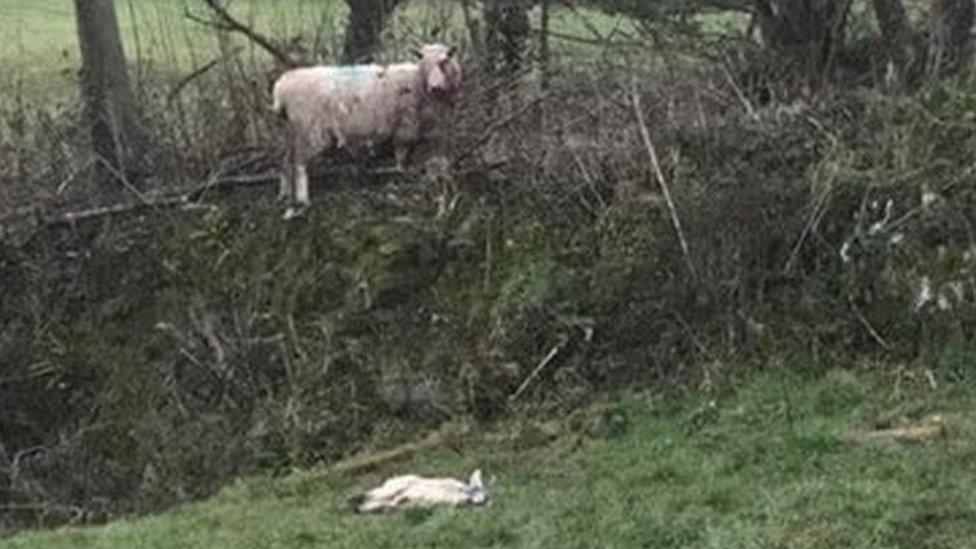Police get DNA training after livestock attacks
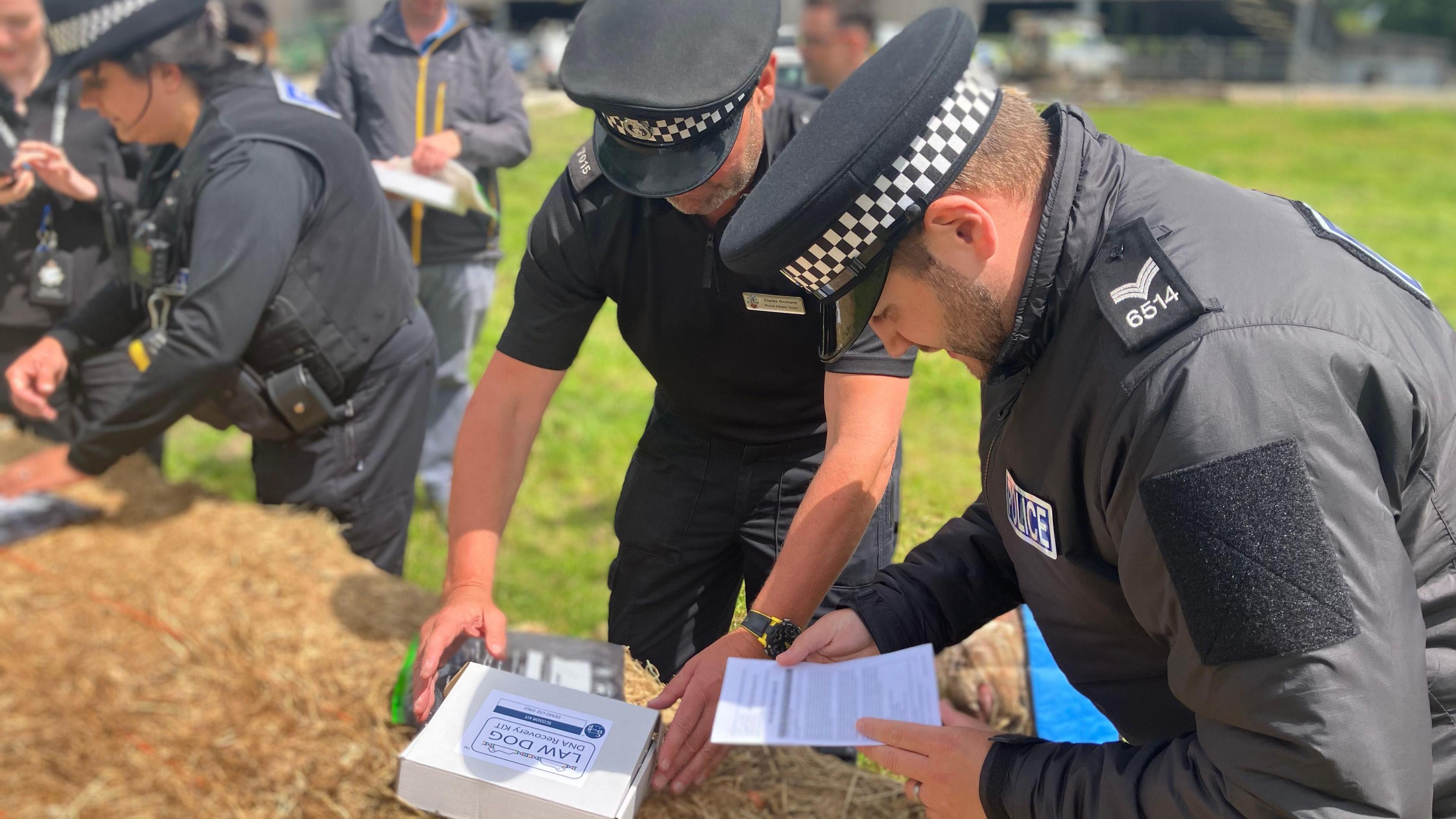
The training sessions, run by Devon and Cornwall Police at Lamerton, will demonstrate how forensic technology could be used to gather evidence just minutes after an attack
- Published
Police and farmers in Devon took part in training sessions on Friday to collect DNA samples after dog attacks on livestock.
Officers hope the new techniques being trialled will in the future be used to help find those responsible, by collecting samples from the injured animals.
Currently the police cannot use this method to prosecute, and it is illegal to take DNA from a suspect animal without the owner's consent.
The work is part of a university research project run by Liverpool John Moores University, with a view for the evidence to one day be used to prosecute.
Attack numbers rising
About £360,000 worth of farm animals were severely injured or killed by dogs across the South West in 2023, National Farmers Union Mutual (NFUM) figures show.
PC Julian Fry, rural affairs officer, said the data shows "we have to do something to bring the numbers down".
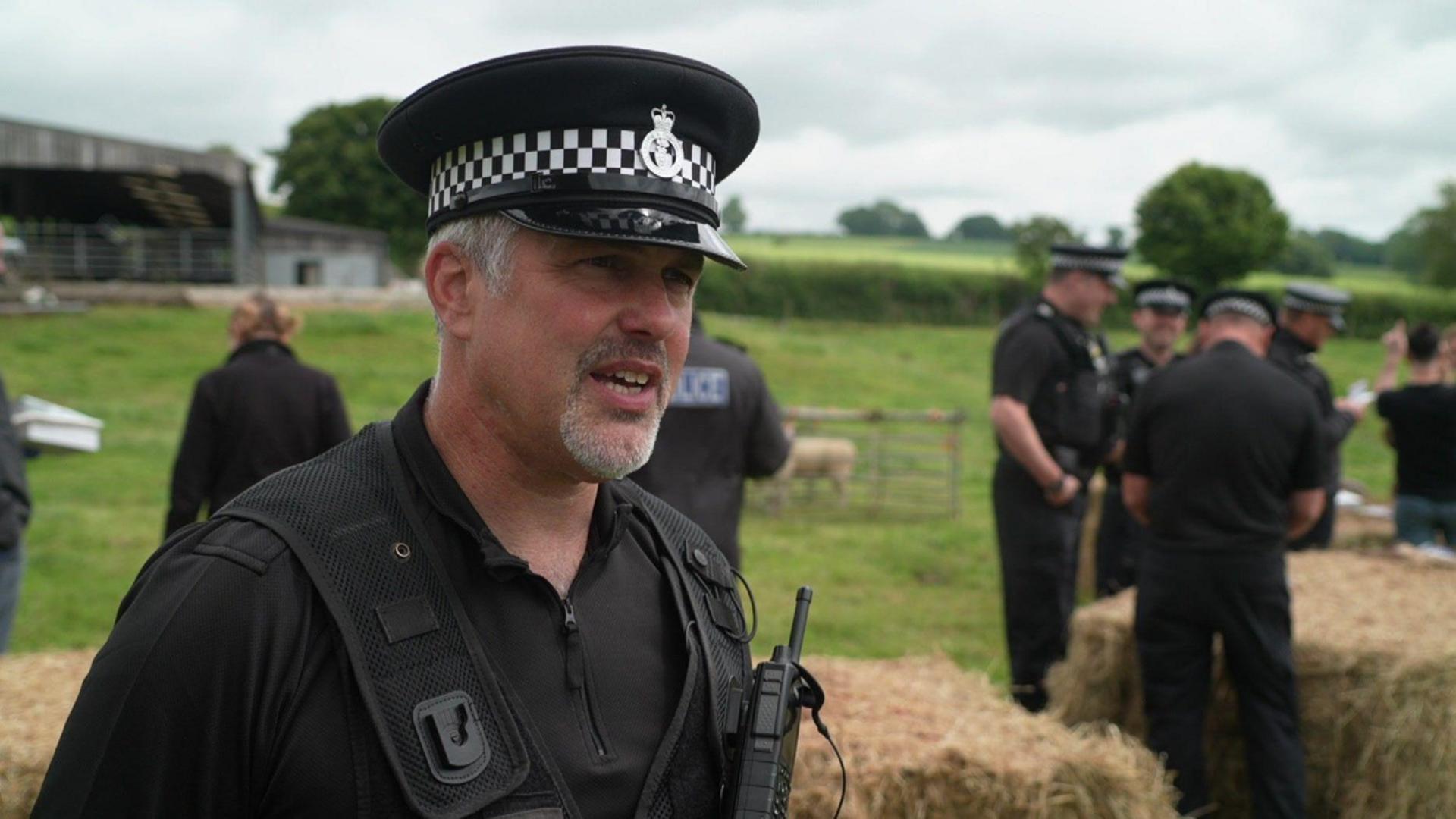
PC Julian Fry said the force's data shows the attack numbers "are not going down"
"Year in, year out we're constantly receiving large numbers of reports of livestock attacks.
"Our data shows the numbers are not going down and if anything they're increasing year on year.
"The NFUM data shows the South West region is the worst hit area in the country in the terms of the frequency of livestock attacks.
"So we have to do something to bring those numbers down and this initiative and training is part of that."
William Dawe, a farmer near Tavistock, was a victim of a livestock attack in February during which he lost 45 sheep.
Thirteen injured ewes and four lambs had to be put down due to the severity of their injuries.
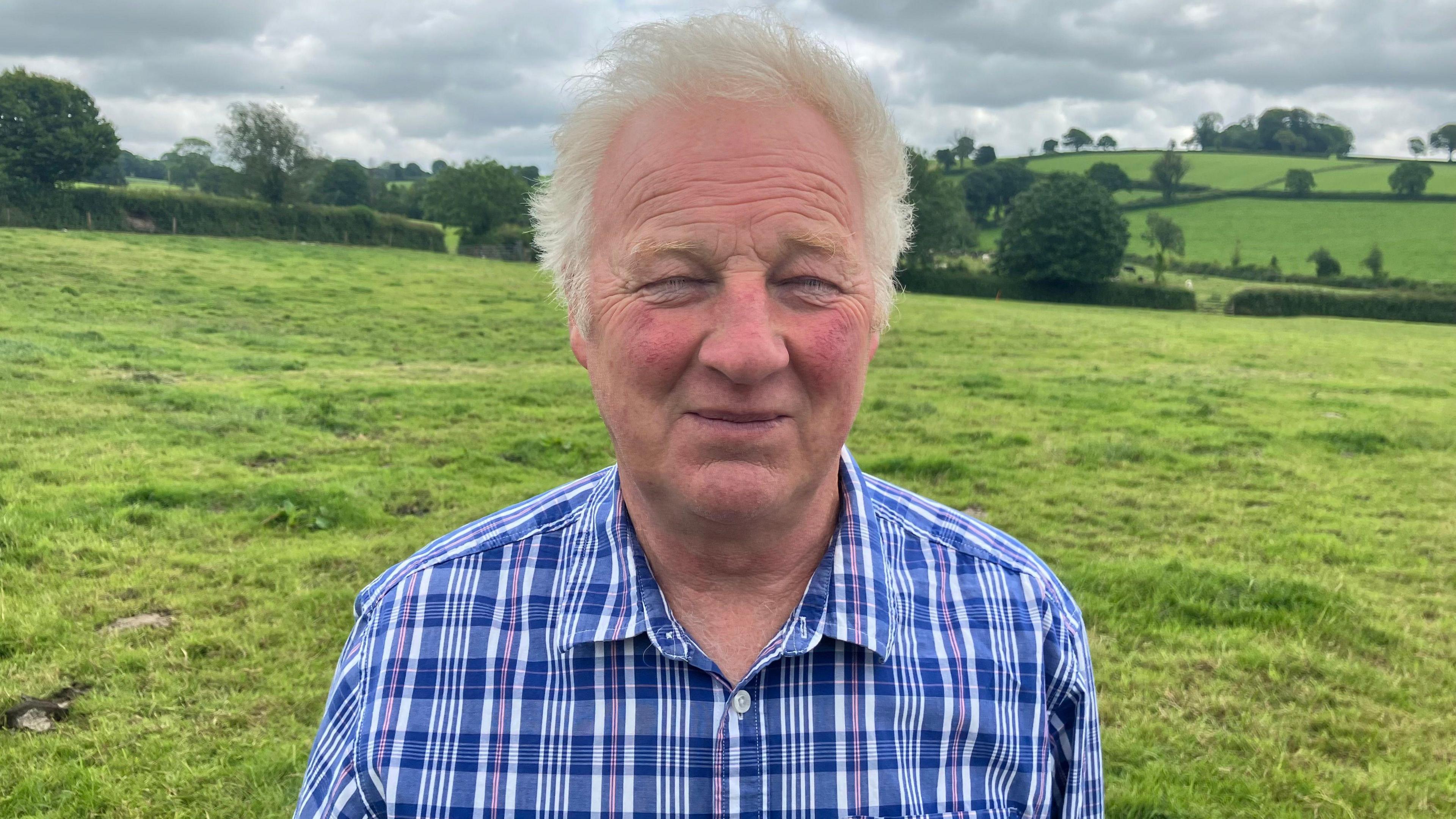
William Dawe, a farmer near Tavistock, lost 45 sheep after a dog attack in February
"Hardly any of the attacked sheep were salvageable", he said.
"If the dogs weren't identified we wouldn't know if the dogs would come back, so we had to keep our remaining lambs indoors."
Asked whether having access to DNA testing kits would have made a difference, he added, "definitely".
He said: "We had tracks, hair in the barbed wire, but DNA evidence would have been 100 per cent.
"These kits are just for research, but it's a good advancement."
'Not there yet'
Dr Nick Dawnay, from Liverpool John Moores University, said the method needs to have its "robustness" tested before it can be used more widely.
"Prior to the use of any new technology in forensics it has to undergo a process called validation where its robustness is tested.
"We're not there yet with this kit, so any data collected is not admissible in a court of law but rather to develop best practise methods.
"I'd like to think by 2026 we'll start to be able to show that these kits provide convincing and better data than we currently observe."
Follow BBC Devon on X (formerly Twitter), external, Facebook, external and Instagram, external. Send your story ideas to spotlight@bbc.co.uk, external.
Related topics
- Published7 June 2024
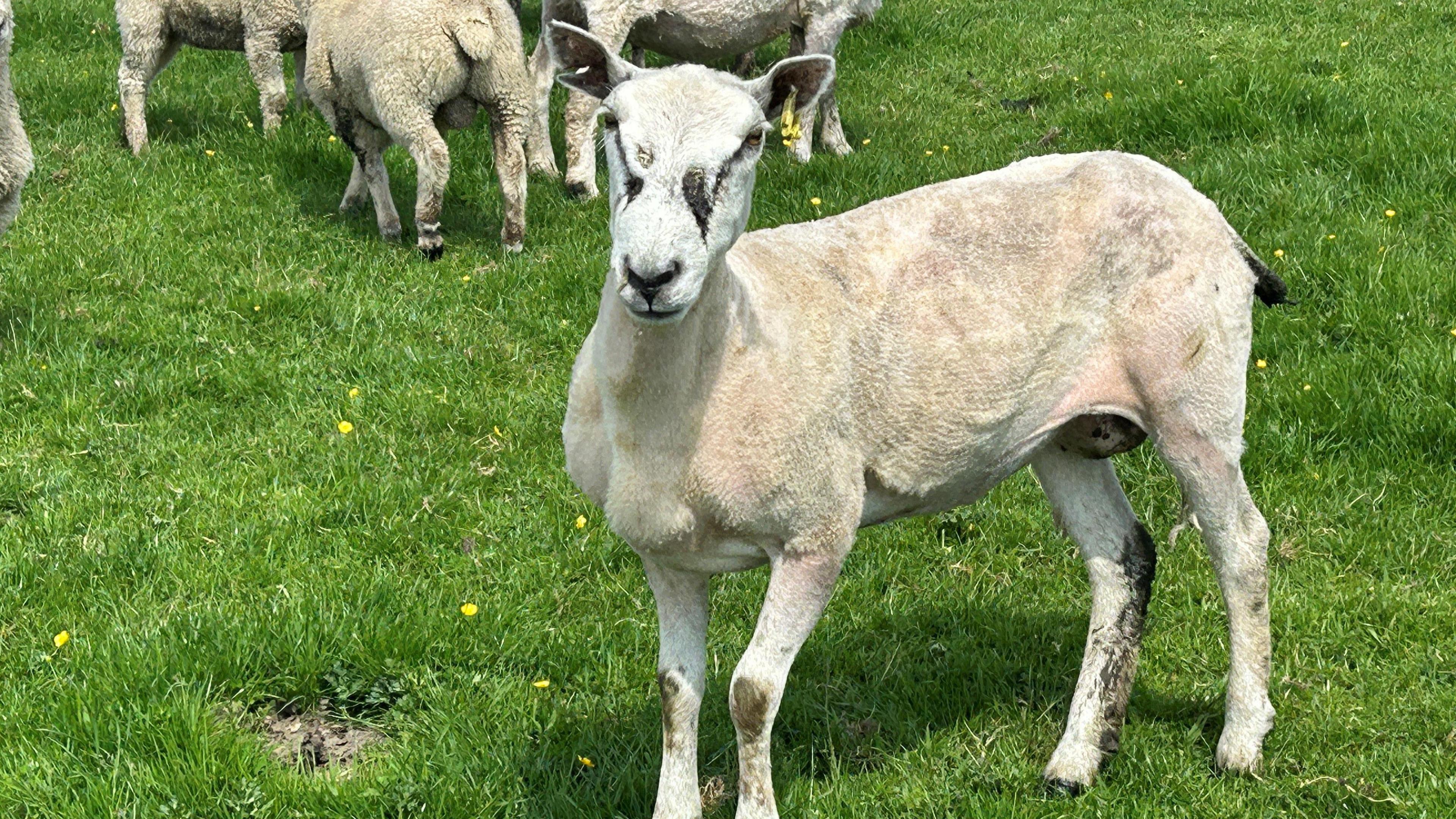
- Published8 February 2024
